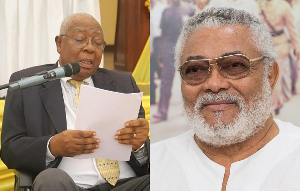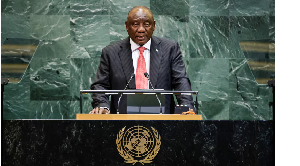Former President of the Association of Ghana Industries Tony Oteng-Gyasi has said that while clamouring for foreign investment, the country should be mindful not to minimise its own returns.
“Which one do we want? Do we want additional foreign capital for its sake? Of course, foreign capital goes where it will make the most return. So maybe if they had 100% return and nothing got left for the country, we would be happy,” the industrialist said sarcastically in reaction to foreign resistance to the local content drive at an event to commemorate Africa Industrialisation Day in Accra.
“No, we don’t want foreign capital for its own sake. That kind of logic will only lead us to minimise our return in order to attract more foreign capital, and we do not need to minimise our return; we need to maximise our return. But we cannot do that if we are not thinking for ourselves, if we are not laying our own plans, and if we are not deciding what is best for us,” he stressed.
Efforts by government to increase local participation in critical sectors of the economy, particularly the oil and gas sector, have attracted criticism from foreign companies and their governments.
United States Ambassador to Ghana Mr. Gene Cretz recently warned that the country’s local content policy in the oil and gas sector may make it difficult to attract foreign capital, technology and expertise.
“As a development partner, the US government is supportive of local content efforts in the hope of developing viable local companies or actors that can do business in Ghana and around the globe,” the Ambassador said.
“We are concerned, however, that Ghana’s local content regulations -- especially in the oil and gas sector -- may make it more difficult for it to continue being the regional leader in attracting the best source of foreign capital, technology and expertise,” he added.
Before it went ahead to approve the Local Content Regulations on Tuesday, parliament was confronted with torrents of resistance from upstream oil and gas companies protesting various sections of the regulations.
According to Mr. Oteng-Gyasi, if efforts are not made to improve local productive capacity, the country will always be confronted with concerns from foreign companies which feel they are the preserve of expertise and knowledge.
While asking for a sector-to-sector analysis of the economy, the former AGI president said manufacturing is the one area that can kick-off a national industrialisation policy.
“It is the one sector that can build on our agriculture and natural resources. It is also the sector that no nation will cede without a fight. Nobody, no foreign country, will come to us and tell us to manufacture and show us how to do it, because every country is jealously guarding its own manufacturing.
This is one of the things we need to do for ourselves. We need to think for ourselves; we need to decide for ourselves, and we need to spend our own monies,” he said.
“Nobody will give you foreign aid to put up a manufacturing facility because they do not want you to compete with their own companies -- and I agree with them; they should not.
We should be using our own money properly, making sure we get value for our money. We are chasing too many projects not because we have decided the projects are good for us, but because somebody has come and said, ‘look, you have oil, you are rich, so I will give you some money to do project A, B or C,’” he added.
“What project is more important in this country than running a railway? But who is talking about running a railway? Because no foreigner is coming to say I will give you money to run the railway? Shouldn’t we be thinking for ourselves?” he asked.
Business News of Monday, 25 November 2013
Source: B&FT
FDI musn’t be for its own sake - Oteng-Gyasi













